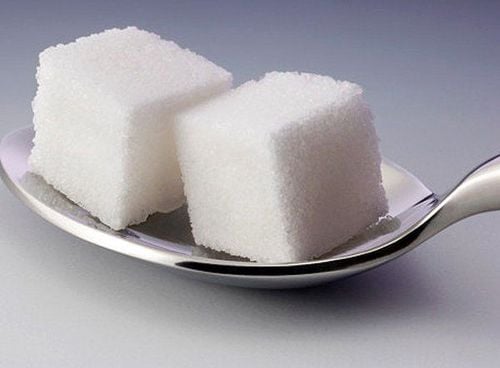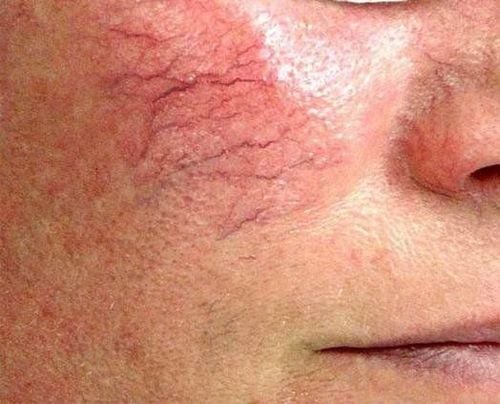This is an automatically translated article.
Fatigue and exhaustion is a condition that everyone in life encounters and must find a way to overcome. However, the condition that the elderly suffer from prolonged fatigue, and may not even want to get out of bed, is like having no energy left, warning many health and psychological problems.1. Depletion of old age like?
Elderly burnout is a state of physical, emotional and mental exhaustion. This condition can be accompanied by a change in attitudes - from positive and concerned to negative and unconcerned. Due to aging, burnout in middle-aged people can also occur.
In young people, burnout occurs when you don't get the help you need or try to work beyond your physical or financial means. But in the elderly, the condition becomes more severe, which can cause fatigue, stress, anxiety and depression.
2. Symptoms of old age exhaustion
The symptoms of burnout in the elderly are similar to those of stress and depression, including:
Reluctance to socialize with friends and family. Losing interest in activities you used to enjoy. Feeling pale, irritable, hopeless, and helpless. Changes in appetite, changes in weight, or both. Changes in sleep patterns. Get sick more often. Mentally and physically exhausted. Excessive use of alcohol and/or sleeping pills. The feeling of wanting to hurt yourself.

Người già bị mệt mỏi và ốm thường xuyên là một trong các triệu chứng suy kiệt tuổi già
3. What causes old people to be tired?
3.1. Certain diseases cause fatigue in the elderly Sometimes, fatigue can be the first sign that something is wrong in your body. For example, people with rheumatoid arthritis, a painful condition that affects the joints, often complain of fatigue. People with cancer may feel exhausted by the disease, its treatments, or both.
Many medical problems and treatments can add to fatigue, including:
Taking certain medications, such as antidepressants, antihistamines and medicine for nausea and pain relievers. Chemotherapy and radiation therapy, or recovery from major surgery. Infection. Chronic diseases such as diabetes, heart disease, kidney disease, liver disease, thyroid disease, and chronic obstructive pulmonary disease (COPD). Untreated pain and conditions such as fibromyalgia. Anemia. Sleep apnea and other sleep disorders. 3.2. Anxiety makes the elderly feel tired Elderly people often have worries, concerns and doubts about many issues such as: “Who will worry about my health? Who will take care of you? Are you afraid you are no longer needed?
Emotional stressors like the above can affect the energy of middle-aged and elderly people. As you can see, fatigue can be associated with many conditions, including:
Anxiety Depression Grief grieving the loss of family or friends. Stress due to financial or personal problems. Feeling that you are no longer in control of your life. In addition, not getting enough sleep will cause fatigue and exhaustion. Regular physical activity can improve your sleep. It can also help reduce feelings of depression and stress while improving your mood and overall health.
Yoga, meditation or cognitive behavioral therapy will give you more rest. Talk to your doctor if a mental condition is affecting your sleep or making you tired.
3.3. Other causes of fatigue in the elderly Some habits in life can make you feel tired. Here are some things that can drain your energy:
Staying up too late : A good night's sleep is important to feeling refreshed and energized. Older people should try to go to bed and wake up at the same time every day. Using too much caffeine. Drinking caffeinated beverages like soda, tea, or coffee late in the day can keep you from getting a good night's sleep. Limit the amount of caffeine you take in during the day and avoid it in the evening. Drinking too much alcohol: Alcohol changes the way you think and act negatively. Alcohol can also interact with your medications. Eat junk food: Say "no" to processed foods, like fried foods and sweets, etc. These are foods that are low in nutrients and high in fat and sugar. Choose nutrient-dense foods to get the energy you need to do the things you love. Exercise too little or too much: Regular exercise can boost your energy levels, but don't overdo it.

Mất ngủ là một trong nhiều nguyên nhân khác gây suy kiệt tuổi già
3.4. Boredom can cause fatigue in the elderly Boredom can make you feel tired. That sounds strange, but it's true. If you've been very busy during your work years, you may feel like you've lost track of your time in retirement. When you wake up in the morning, you can see the day stretching ahead with nothing to plan. That makes you tired. Expert advice for seniors is:
Get involved in productive and social activities you enjoy, like volunteering in the community, that can help maintain your health. Think about what interests you or what skills or knowledge you have to help you find places to volunteer.
4. How can the elderly feel less tired?
Some lifestyle changes can help older people feel less tired. Here are a few suggestions:
Keep a fatigue journal to help you find patterns throughout the day when you're feeling more or less tired. Get regular exercise: Most people, of any age, can do some type of physical activity. If you're concerned about starting an exercise program, ask your doctor if there are any activities you should avoid. Moderate exercise can improve your appetite, energy, and mental state. Some people find that exercises that combine balance and breathing (for example, tai chi or yoga) improve their energy. Try to avoid long naps (over 30 minutes): Long naps can make you feel groggy and make it harder to fall asleep at night. Quit Smoking: Smoking is linked to many diseases and disorders, such as cancer, heart disease and respiratory problems, etc. Ask for help if you feel fatigued. Some people have so much to do that just thinking about their schedule can make them feel tired. Working with others can make your work faster and more enjoyable.
5. Exhausted in old age, when should you see a doctor?
If the elderly feel fatigue for several weeks without improvement, you should take them to see a doctor. The doctor will perform a physical exam such as asking about the patient's sleep, daily activities, appetite and daily exercise. At the same time, the patient may also be assigned a number of tests and tests to evaluate general health.
Based on the test results, your doctor may prescribe medication to treat underlying health problems such as anemia or thyroid dysfunction. At the same time, experts will advise the elderly with fatigue a balanced diet and start an exercise program.
Please dial HOTLINE for more information or register for an appointment HERE. Download MyVinmec app to make appointments faster and to manage your bookings easily.
Reference source: webmd













